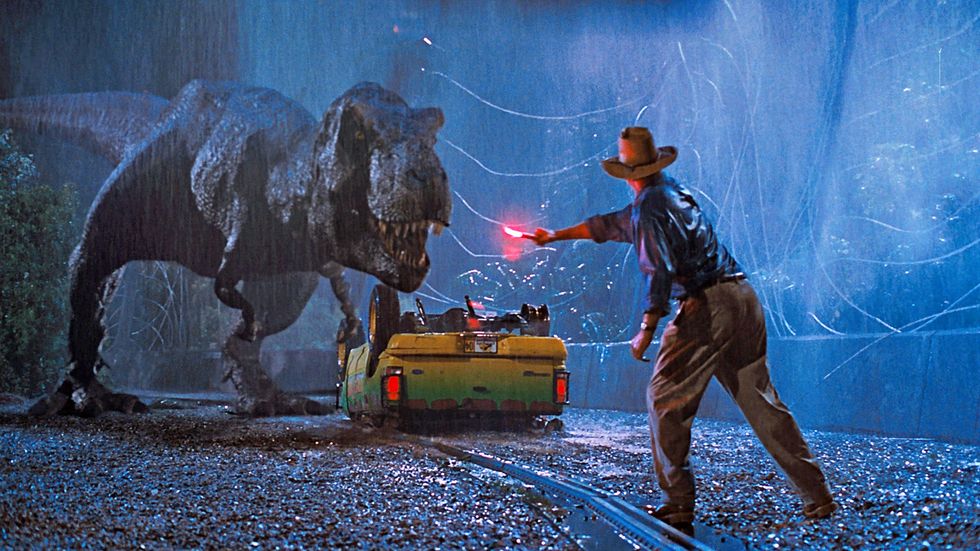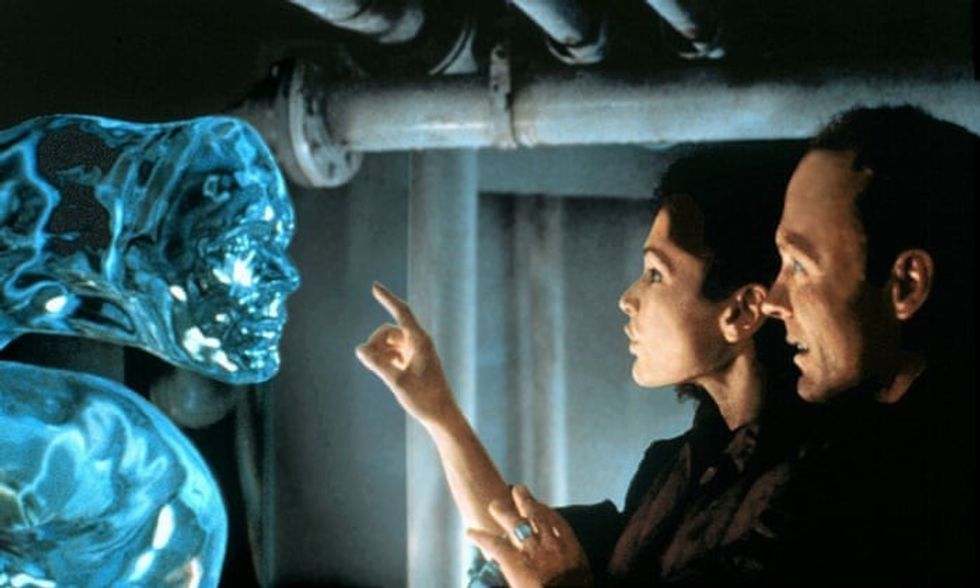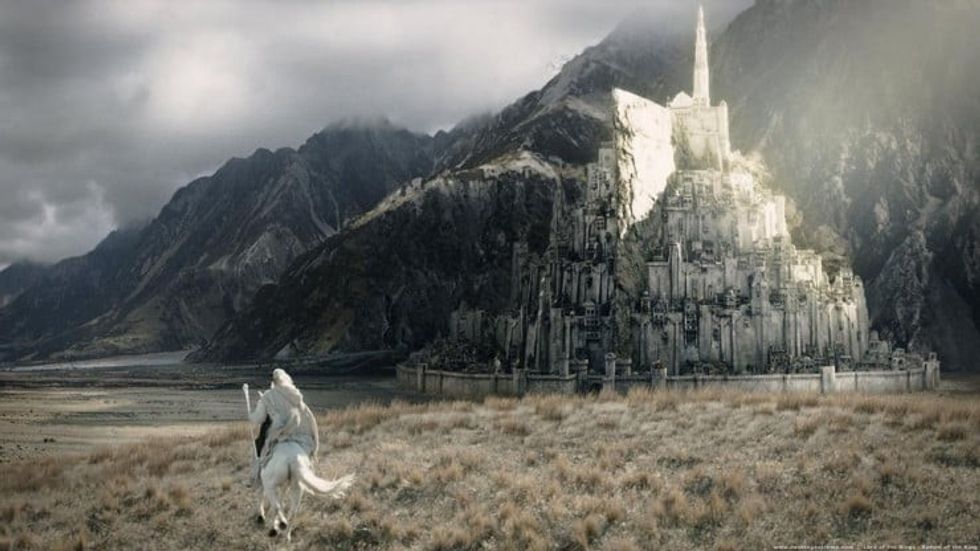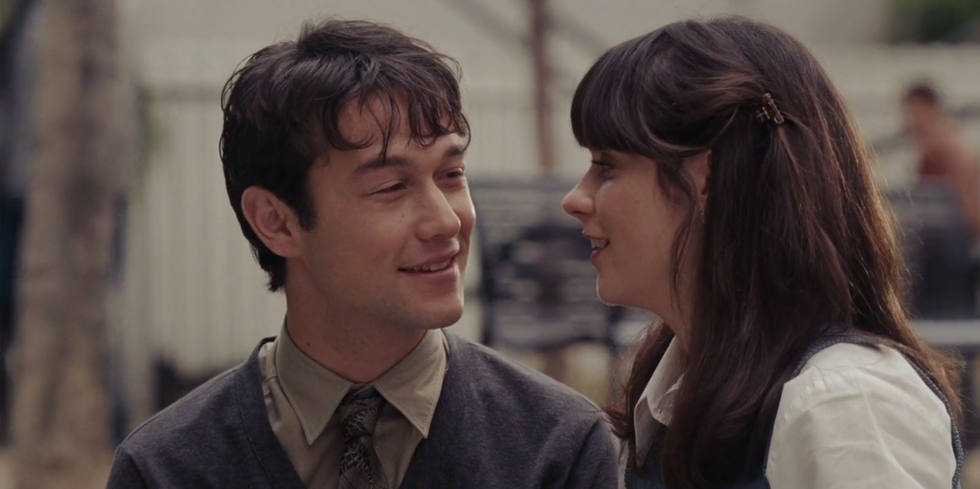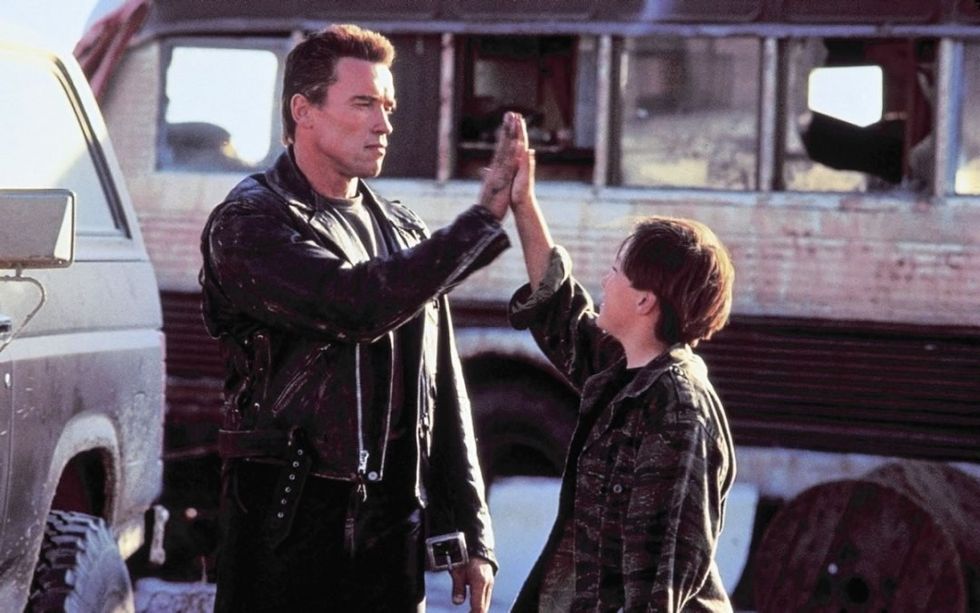Time Traveling in Movies: A Very Complicated Plot Device Explained
If you've ever wanted to make a film about time travel, you might want to brush up on how different filmmakers have made sense of it in their work.
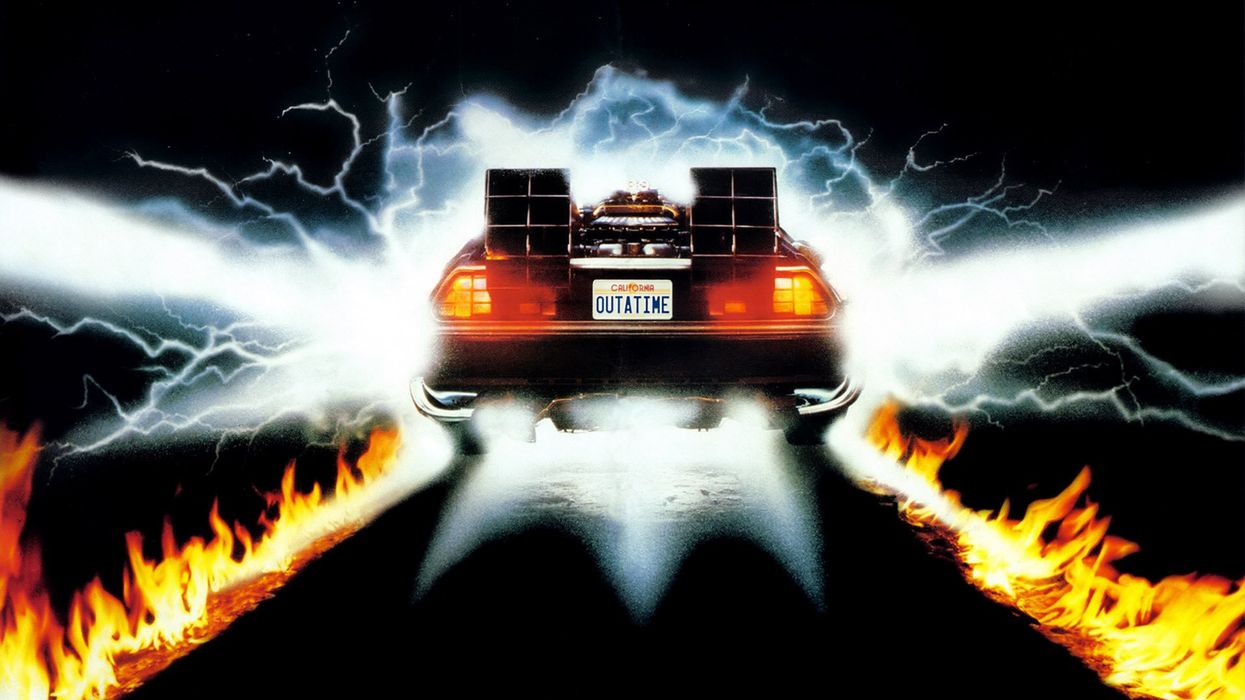
Time travel movies are—awesome—we know this—but what makes them so interesting has less to do with the awesomeness of time travel as a narrative concept and more to do with the awesomeness of time travel as a plot device. (Did I mention that time travel is awesome and also has loads of awesomeness?)
There are so many films about time travel, from the silly (Bill and Ted's Excellent Adventure) to the dramatic (Looper), and each one deals with the concept in different ways and for different purposes. In this video, Henry Reich of MinutePhysics, my second favorite science channel on YouTube, analyzes time travel in film and literature to determine how it functions in the hands of different writers and filmmakers. On its own, it's an incredibly fascinating video, but if you look at it through the lens of storytelling, you can learn how adding a wrinkle in time can not only open up new narrative passageways for your time traveling characters but for your audience as well.
Time travel is a complex concept, and I failed almost every science class I ever took, so I won't bore you with my so-bad-it's-sad explanations of it. But it's remarkable to see how different screenwriters and filmmakers have used time travel as a plot device. It immediately complicates the progression of the story by requiring the audience to be engaged enough to recall and track each jump through time and space, as well as understand and accept the unique physical rules set in place by the filmmaker. Are we dealing with wormholes, time dilation, or just a bunch of hocus-pocus? Does the time-traveling character affect the past? Does he have free will?
Perhaps one of the most brilliantly complicated examples of time travel in film is 2004 indie sci-fi film Primer. Written and directed by Shane Carruth, the film has a complex, experimental plot structure that, as you can see from Reich's illustration above, is challenging for even the savviest movie-goer to follow. In an interview, Carruth, who studied mathematics in college, explained what inspired the principles of time travel in his film:
Richard Feynman has some interesting ideas about time. When you look at Feynman diagrams [which map the interaction of elementary particles], there's really no difference between watching an interaction happen forward and backward in time.
And just in case you want your head to explode, here's a video that illustrates Primer's timeline.
What is your favorite time travel movie? Are movies like Memento and Inception time travel movies? Kind of? Let us know down in the comments below.
Source: MinutePhysics


